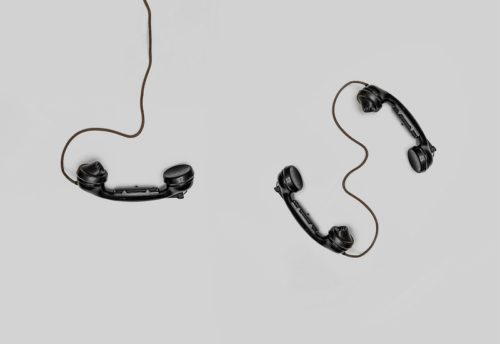So – you’ve done the hard work of finding a therapist or mental health clinic. You have their phone number ready to go, and suddenly you panic. What should I say? Will they take me seriously? What kind of questions will they ask me? How do I go about getting a therapist?
Never fear – Therapy4thePeople is here!
We’ve written a brief “script” that you can use to contact a mental health clinic to schedule your first therapy appointment. Our script has common questions you may be asked, questions you should ask, and tips for getting the services you need. It won’t cover every scenario, but we hope it gives you a good starting place for what to say when you’re seeking therapy services for yourself or a loved one.
*****
Start brief:
“Hi, I’m calling to schedule a therapy appointment. I have been feeling [EMOTION; e.g., sad, anxious] or struggling with [BEHAVIOR; e.g., drinking, arguing] lately and am hoping I can talk to someone about it.”
It is common to want to tell the person who answers the phone everything that is leading you to therapy. But know that the first person who answers the phone may need to route you to a scheduler or the therapist themselves. So it’s best to keep the first encounter brief.
Once you’re connected to the right person, they’ll probably ask you about:
- Identifying information: Name, age, address, etc.
- Symptoms: What mental health symptoms have you been experiencing and for how long? This information helps the scheduler match you with the right therapist and treatment for you.
- Tip: Only share what you feel comfortable talking about at this point. There will be plenty of time to tell your therapist about what you’re experiencing in your first appointment.
- Insurance: What type of insurance do you have? The scheduler will need this to understand your coverage for therapy.
- Tip: They may need your insurance number, so it’s helpful to have your insurance card handy!
- Availability: What days and times are you available to meet with a therapist?
- Tip: It can be harder to schedule appointments with therapists on evenings and weekends. The more availability you provide, the more likely it is that you can see someone faster.
You’ll want to make sure that your questions get answered too. We recommend that you ask:
“Do you take my insurance? If so, how much is the co-pay (out of pocket) per session?”
- Tip: Not all clinics will know this information right away. They may need to call your insurance company first or they may ask you to call them yourself. Co-pays are due in each appointment, so you’ll want to budget for it.
“If my insurance isn’t accepted, how much will each therapy session cost?”
- Tip: Therapy can cost on average anywhere between $100 to $200, but can vary depending on many factors (e.g., where you live, the therapist’s credentials). Some clinics offer a sliding scale for people with lower incomes. If you’re struggling financially, it never hurts to ask! For more tips on how to make therapy affordable, check out our Therapy Financial Aid 101 guide.
“Do you offer the type of treatment I am looking for? Do you have therapists who specialize in what I’m struggling with?”
- Tip: Based on your symptoms, you may want to request a specific type of therapy. For example, if you experienced trauma and are hoping to process it with a therapist, you may want to request “trauma-informed” therapy. If you’re hoping to attend therapy with a group of people who have similar experiences, you may want to request “group therapy.”
“Do you offer virtual or in person appointments?”
- Tip: Some clinics only offer therapy in person and others only offer therapy virtually. Others offer both. Ask the clinic what they offer and let them know your preference.
You may be told that you’re not able to see a therapist right away. If so, it’s good to ask some additional questions:
“Thank you for adding me to your waitlist! How long do you think the wait will be? I really want to start seeing a therapist as soon as possible.”
- Tip: Even if the scheduler tells you that there is a long waitlist, you can always call them while you’re waiting to ask if they have any cancellations. This will also help them know that you’re still interested.
- Tip: Read our blog post on what to do when you’re on a therapy waitlist for more ideas about how to get help soon. For example, you can try out other mental health resources like mHealth apps or support groups in the meantime.
“Do you have a list of other mental health clinics or therapists you’d recommend that I contact?”
- Tip: Most schedulers have a list of referrals that they can share with people who were put on their waitlist. You can also explore Therapy4thePeople’s directory of free and low cost mental health supports to find other therapy options near you. When conducting an advanced search, you can tailor results to your unique needs such as the language therapy is provided in, financial aid options, and specialized services for your identity or background.
We hope this script gives you a starting place for what to expect when scheduling your first therapy appointment! If you’re hoping to learn more about what therapy will be like when you start, check out our post on what to expect.
Our final advice is to not give up! Due to the Covid-19 pandemic, worsening economic recession, and ongoing systemic injustices, more people are seeking therapy than ever. It may help to ask a friend or family member support your effort to schedule an appointment with a therapist. Your persistence will pay off!








